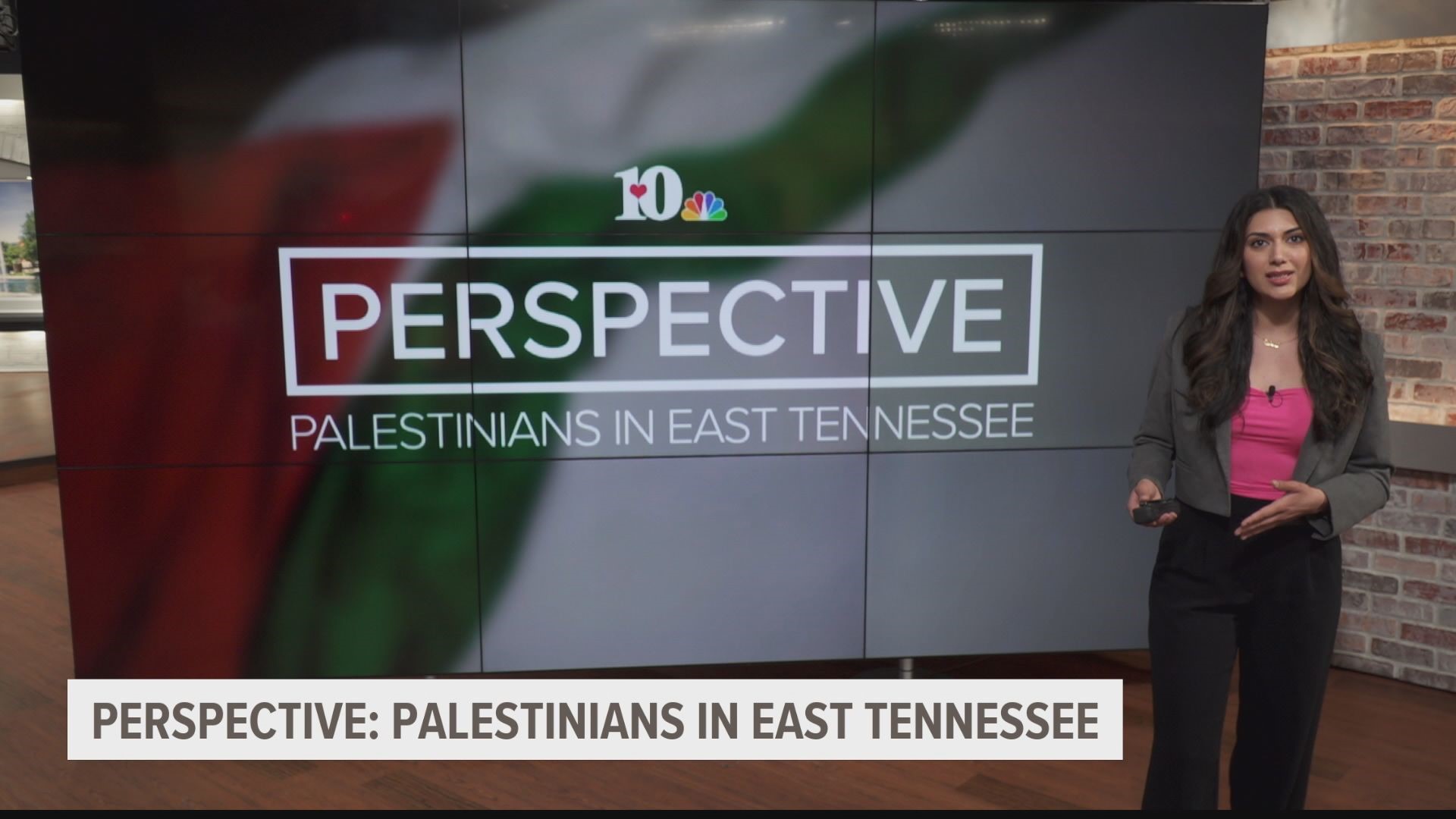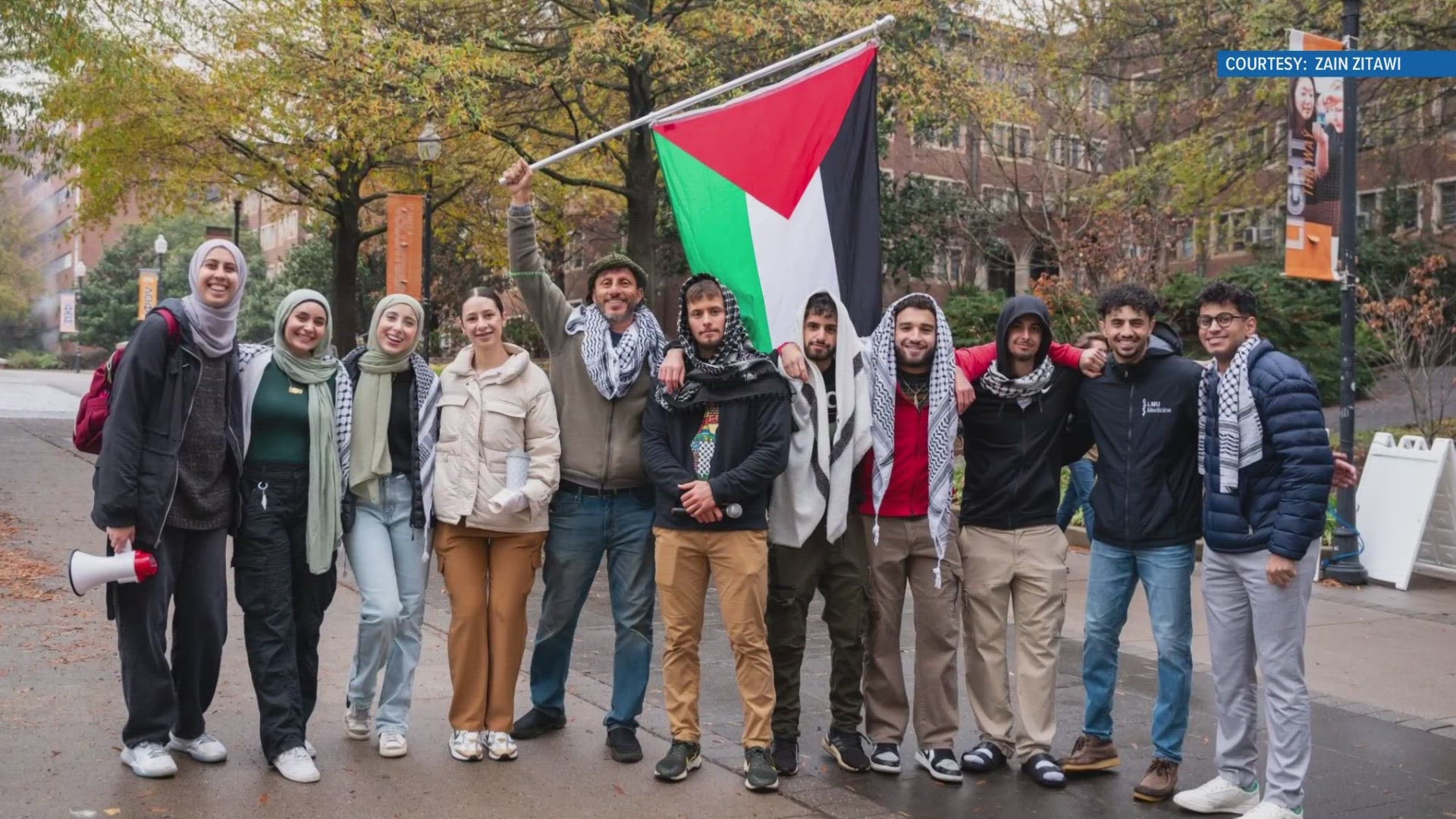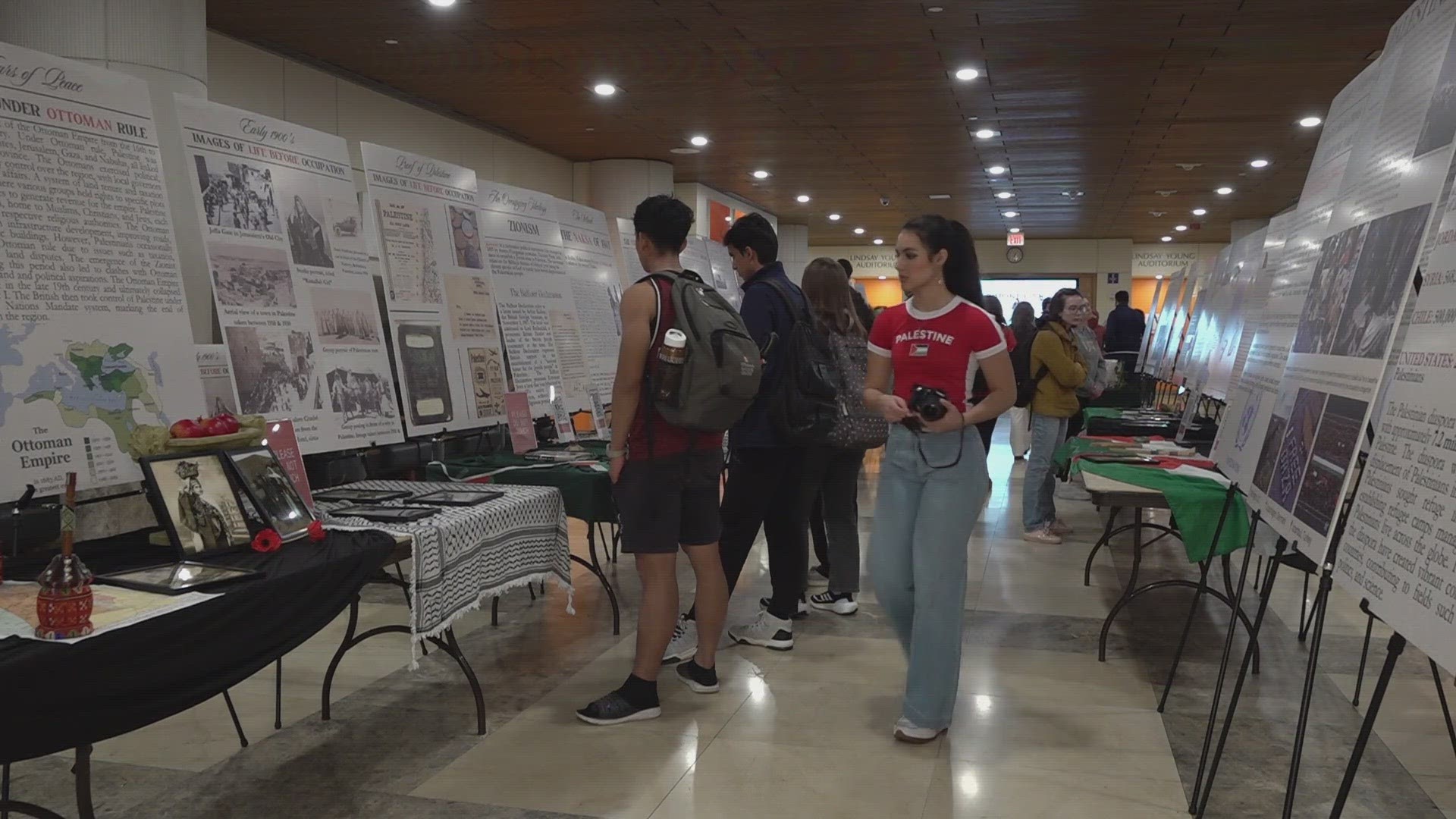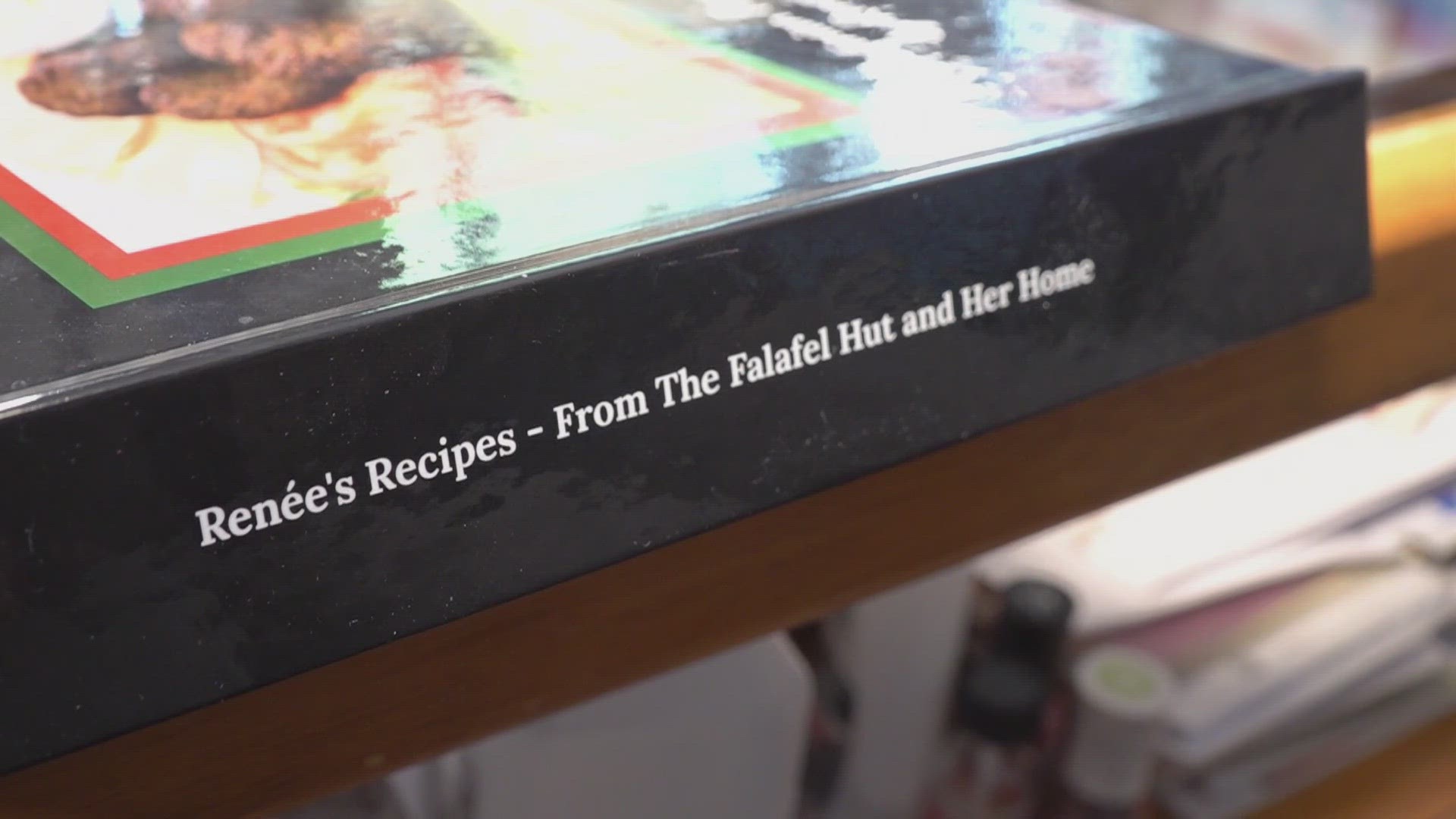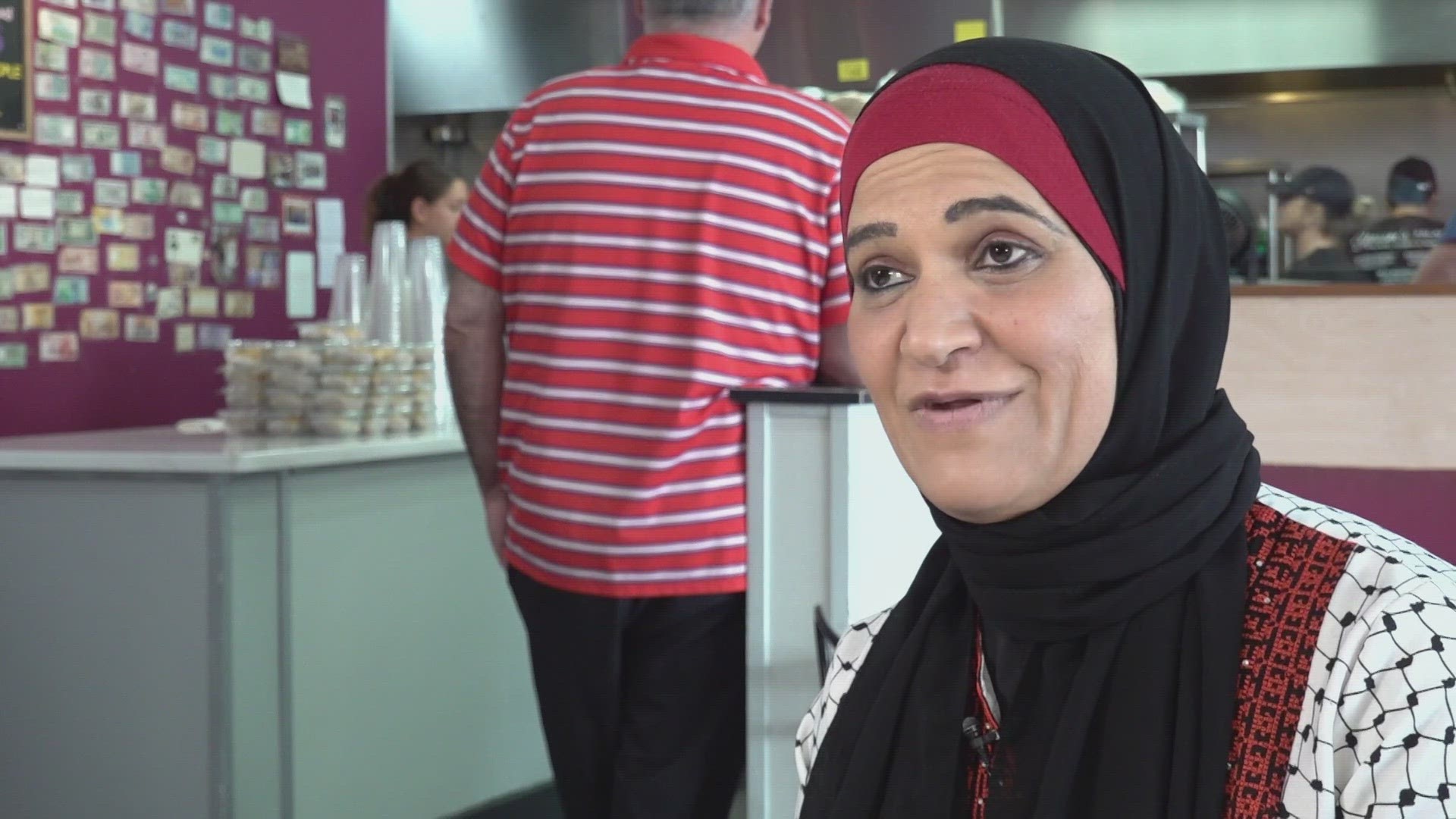Perspective: Heartaches and hopes of Palestinians in East Tennessee
In Gaza, the threat of more bloodshed and suffering grows more dire by the day. This collection of stories features people often overlooked and sometimes forgotten.
Adobe
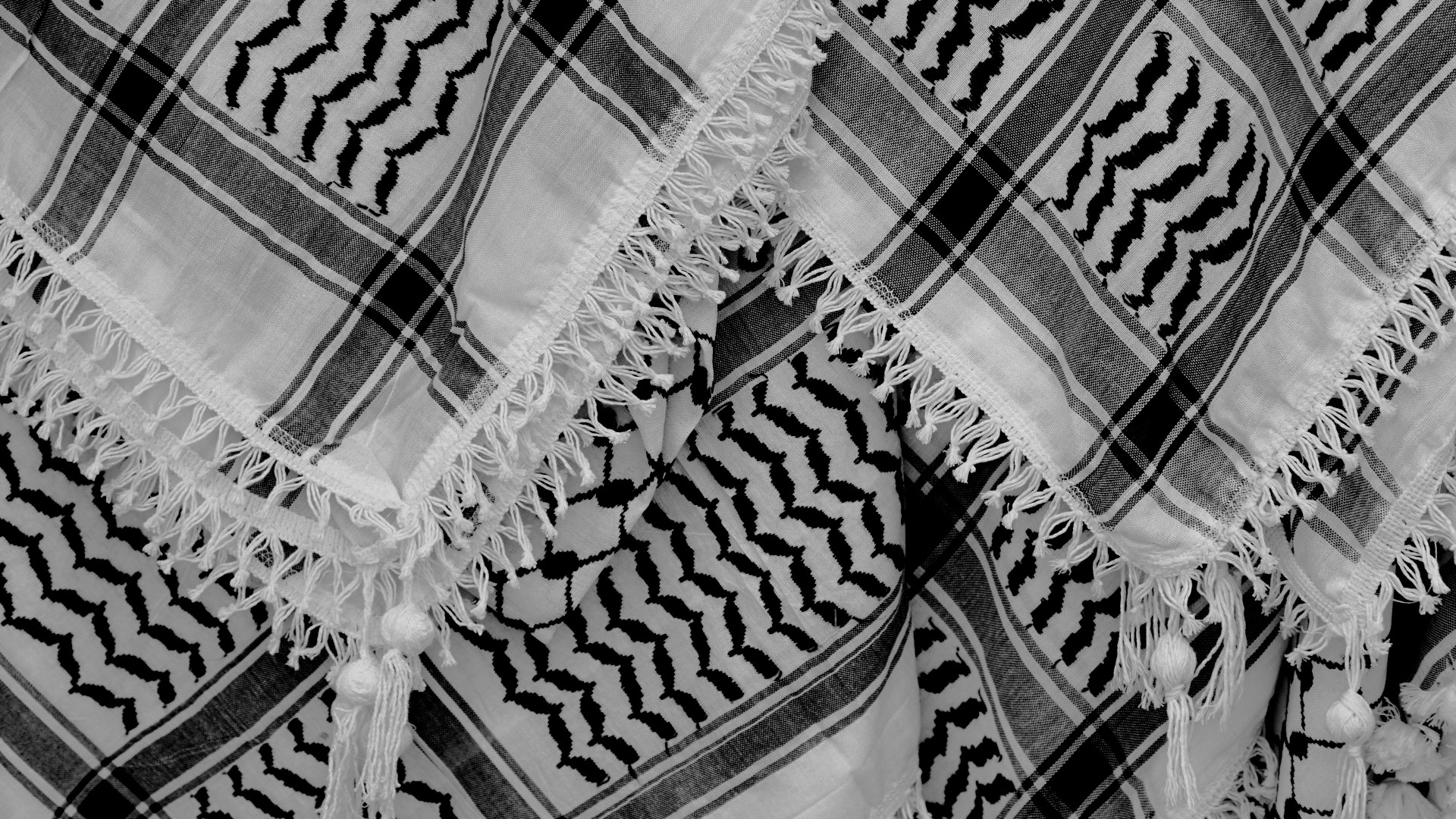
A note from WBIR's Raya Quttaineh:
It's been almost six months of horror for Palestinians living in Gaza. Within this strip of land—only roughly 40 square miles bigger than Knoxville—the threat of more bloodshed and suffering grows more dire by the day.
In October, roughly 1,000 Israelis were killed. Since then, more than 31,000 Palestinians have been killed, according to the United Nations and Ministry of Health in Gaza.
As we mourn the loss of all innocent lives, I recognize the different emotions, opinions and beliefs surrounding this topic—and the long-divided history of this part of the world.
I'm launching this series not to take sides, but to offer a glimpse of the human toll tied to the violence.
This collection of stories features people often overlooked and sometimes forgotten.
My goal is to share a new perspective on the life-changing events unfolding in a far-off place that directly impact people in East Tennessee every day, including myself.
I'm a proud American. I'm also a proud immigrant. And, I'm a proud Palestinian.
What follows are the stories of people like me—sharing their journey, heartache and hope for a better future.
Adam Masri "Just have humanity"
For months, Adam Masri has been haunted by the images coming out of Gaza.
From his phone, he has witnessed Israeli airstrikes destroy homes, schools, hospitals, mosques and churches.
According to the United Nations, more than 30,000 Palestinians have been killed since October—that's not counting those trapped in the rubble, either not yet found or impossible to reach.
"My dad's cousin, his whole family was wiped out in a strike," Masri said. "It's sad to have to look your dad in the eye and say, 'I'm sorry. Things will get better.' You feel like your people are going through one thing and it could easily have been you if your parents didn't decide to leave."
Masri's parents moved to Nashville from Palestine in the late 1990s.
As he watches what is unfolding from his home in East Tennessee, Masri remembers visiting his family in Gaza two years ago for the first and only time.
"It's so beautiful," he reminisced.
And yet, a place filled with so much beauty, Masri said, can be overshadowed by the ugliness of life under siege.
"When I was over there, we had six hours of electricity every day," he said. "That's unlivable. They'd ask me things like, 'How is it outside of these walls? How is it over there? When you turn on the shower, does it work?'" And that was on a good day, Masri said, when his family wasn't overcome with the fear of being bombed.
According to the independent human rights organization Human Rights Watch, "Since 2007, Israel has maintained a closure of the Gaza Strip and, for decades, has systematically repressed Palestinians."
"Americans have to open their eyes and think, 'If I lived there, how would I feel? If I lived in Palestine and Gaza, how would I feel about my life? Would I be happy with how things are going or would I be desperately in need for freedom, just basic human rights?"
Masri's surviving family members make the best of what they have in Rafah and Khan Younis, Gaza's southernmost cities now filled with makeshift tents for most of the nearly two million Palestinians who've been displaced since October.
According to the humanitarian organization Save the Children, there is no safe place in Gaza, and communication blackouts make it difficult for Masri to get daily updates from his family.
While he worries for their safety, Masri is using his voice on the University of Tennessee campus to call for a ceasefire and an end to the Israeli occupation.
"Civilian casualties, people being kicked out of their homes, people being injured unjustly for doing for simply living. That's not complicated," he said. It's not complicated, Masri went on, to mourn for the loss of innocent life and want to do something to stop it.
"Just have humanity in your heart. If you can't imagine your mother dying, your child dying, your husband dying, then you can have a heart for the Palestinian people."
History and heritage "More than a tragedy"
History, heritage and heartache. All parts of being Palestinian, all on display at the University of Tennessee campus.
A walk through this pop-up exhibit is a walk through Palestine—its culture, stories and struggles, both past and present.
The gallery was brought to campus by UTK's Students for Justice in Palestine chapter and the Nashville-based nonprofit 615 Youth For Palestine.
"A lot of my closest friends have family who is there in Gaza, and seeing them and what they're going through, it's just painful. I don't think anybody should have to go through that," said UTK student Hamza Saleh.
Saleh is not Palestinian, but said he cares deeply for the Palestinian pursuit of freedom and justice. Many of his friends and classmates have been affected by the attacks on Gaza.
"I've lost family. I've lost tens of family members, many of [whom] I'll never get to know, and that's very hard to grapple with," said Amira Ayesh-Akins, co-founder of 615 Youth for Palestine.
Ayesh-Akins helped create the exhibit. One of the displays showcases her Palestinian grandfather's poetry as he wrote about longing for his homeland throughout his life.
"As much as I know his poetry is for Palestine, for people to read, I feel like also it's letters he left behind for me he didn't know he was writing for me," she said.
Today, Ayesh-Akins is keeping her grandfather's work and memory alive.
"Palestinians are more than a tragedy. We're more than colonization, we're more than occupation. We have roots, and we have so much more depth than just the war, the tragedy and the loss that you see on TV," she added.
From traditional clothing to literature, music and art, the exhibit is a reminder that it's impossible to understand Palestine today without knowing Palestine's past.
Renée Jubran "I miss my Palestine"
They say home is where the heart is, and Renée Jubran's heart will always be in Palestine. But, after more than six decades in Knoxville, she'll tell you home can be two places at once.
That's why she brought the flavors of the Middle East to East Tennessee.
"Why? Because it's the best food ever," Jubran laughed.
For 25 years, Jubran and her late husband served Palestinian cuisine at the Falafel Hut near downtown Knoxville.
“When I saw the place full of people, I would go into the back room and cry from happiness that people do love Palestinian foods," Jubran said.
The Knoxville staple closed its doors two decades ago. Today, Jubran's recipes live in the pages of a cookbook she has dedicated to her life partner.
“My husband was an American veteran. In a way, I'm glad he's not alive to see what is all happening in Palestine because it would have killed him earlier than his cancer," Jubran said.
Throughout most of her life, the 87-year-old has carried her homeland in her heart. But for over 75 years, she has also carried pain.
“We get all kicked out of our homes. This is the saddest part of my whole life," Jubran said.
During the Nakba, an Arabic word meaning "catastrophe," Jubran and her family were forced out of their hometown. She was 11 years old and had to leave everything she knew behind.
The Nakba refers to the "mass displacement and dispossession of Palestinians" that took place in 1948. More than 750,000 Palestinians fled or were forced to leave. According to the United Nations, Palestinians today "continue to be dispossessed and displaced by Israeli settlements, evictions, land confiscation and home demolitions."
“I miss my Palestine. We had good neighbors around us; Muslims, Christians and Jewish people," Jubran said as she reminisced about her childhood. "My best friend, her mom is Jewish, and until now we are in touch, We had a beautiful life. No worries, just happy. I see the children now in Palestine. They don't have a happy life. All they hear is bombs and shootings."
In East Tennessee, Jubran's recipes keep her Palestinian heritage alive. While her homeland will always live in her heart, it's now permanently printed on the pages of her cookbook.
“In my heart, I always think Palestine will be free one day. It has to be because what's being done is very unjust. And things have to change," Jubran said.
Jubran's cookbook can be purchased at Holy Land Market & Deli in Knoxville. A portion of the proceeds help Palestinian charities and children in need of operations or other medical needs.
Shaping Tennessee "I'm proud to be Palestinian"
East Tennessee has its roots. So do its people.
"I'm very proud to be an American and the fact that we're here. I thank my parents every day for making that decision—for deciding to come here for our benefit," said Design Innovation Architects founder and president Faris Eid. "But you still have a connection to your roots. That's where we came from. It's basically something that's ingrained in our mind and heart every day."
Based in downtown Knoxville, Design Innovation Architects has helped shape East Tennessee. For over 30 years, the firm has worked on projects across Knoxville and preserved historic buildings such as the Farragut Hotel, now known as the Hyatt Place on Gay Street.
Design Innovation Architects helped design downtown Knoxville's multi-use stadium, the future home of the Tennessee Smokies. The stadium is expected to open in 2025.
"I can't think of a better place to be than in East Tennessee and Knoxville specifically," Eid said. "Because people really appreciate you for what you are."
For over a decade, Yassin's Falafel House has given East Tennessee a taste of the Middle East. It's been dubbed as the nicest place in America.
Together, co-owners Yassin Terou and Jamileh Al-Saghir are fusing Syrian and Palestinian flavors. The wife and husband team are life and business partners.
"I love Knoxville," Al-Saghir said. "My kids were born here. It's a second home for my kids. It's a second home for me and for Yassin."
The daughter of Palestinian refugees, Al-Saghir still has family in the West Bank. "I'm really proud to be Palestinian and even my kids, I'm proud for them to be Palestinian," she said.
In north Knoxville, Danny Harb's video production company HP Video has served both local and international clients, including stars like Seth Meyers and Dolly Parton.
He visited his family's hometown in Palestine for the first time in the late 1980s.
"When you have your family in the same place for 500 years, there is a connection," Harb said. "When you can trace your roots back that long, there's also that sense of being part of it. For me to be Palestinian, I'm awfully proud of it, and I let people know that I have a Palestinian heritage. Any other heritage is great as well, but I like to share that because many people don't know Palestinians. They only know what they've heard about Palestinians."
About 30 minutes outside of Knoxville, Oak Ridge Pharmacy owner Dr. Saad Aqqad knows first-hand how the horrors in Gaza are impacting people in East Tennessee.
"It's unfortunate to see what has happened in our homeland," Aqqad said. "We have families here in this Knoxville community and Oak Ridge community; you'll run into them and they've lost their whole family."
Aqqad's family is from Nablus, a Palestinian town in the West Bank. He grew up in East Tennessee and wanted to bring a full-service pharmacy to the Oak Ridge community. Aqqad opened the Oak Ridge Pharmacy in 2019.
"I felt like there was a need in this community for a pharmacy that takes care of people like it's their own family," he said. Aqqad's family has been in East Tennessee since the 1970s.
He hopes people will educate themselves about the events unfolding in Gaza.
"There's no justice in killing innocent children and humans that have done nothing wrong. It's barbaric, and it has to end," he said. "This is a social injustice. Humanitarian aid needs to get there and a ceasefire needs to happen immediately."

